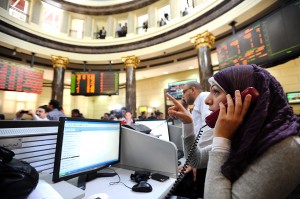
(DNE File Photo)
Reuters – Cairo’s bourse recovered early-session losses and rose 0.7 percent to its highest close since January 2011. Investors took in stride fresh violence in the country, focusing instead on signs that the economy is stabilising.
A car bomb tore through a police compound in Egypt’s Nile Delta on Tuesday, killing 13 people and wounding more than 130, security officials said, in one of the deadliest attacks since President Mohamed Morsi was ousted in July.
Year-to-date gains by Dubai’s main stock index rose above 100 percent on Tuesday as investors, positioning for full-year earnings, pushed real estate and bank stocks higher. Most other regional markets also rose.
The Dubai index climbed 1.3 percent to its highest close since October 2008, extending its 2013 gains to 102.2 percent. Blue chip Emaar Properties gained 3.0 percent and Deyaar Development rose 6.5 percent. Heavyweight bank Emirates NBD climbed 1.5 percent.
“The play right now in the UAE is for earnings, more than dividends, which are more attractive in Saudi Arabia and Qatar,” said Amer Khan, fund manager at Shuaa Asset Management.
“We are in a rally, but at the end of the day it depends on whether it has legs and this depends on earnings.”
Some fund managers think a pull-back is likely in the near term since Dubai has risen so sharply. However catalysts such as MSCI’s planned upgrade of the United Arab Emirates to emerging market status next year mean any dip in prices will be well bid, Khan said.
Abu Dhabi’s measure climbed 0.3 percent to a fresh five-year closing high. Dana Gas rose 4.2 percent; it said it had just received $53 million from the Egyptian government out of a total of $330 million owed, and that Egypt had committed to work with the company on a plan to repay the remainder of its debt.
Qatar’s index advanced 0.4 percent, extending its 2013 gains to 25.6 percent.
Qatar Investors Group surged 8.0 percent, rising sharply for a third straight session, in what traders say is a rally driven by institutional buyers looking to win more seats on the board since the company said it would allocate them in proportion to share ownership.
In Saudi Arabia, the benchmark slipped 0.5 percent, easing off Monday’s 63-month high. Investors booked gains in banks; the sector’s measure shed 0.8 percent.
Shares in Riyadh-based building materials firm Bawan Co jumped to 39.60 riyals on their first day of trade from an initial public offer price of 36.00 riyals. The Capital Market Authority has this year limited first-day trading moves to 10 percent, and the stock quickly went limit-up.
“To make the same amount of profit on IPOs as before, people will need to wait a few days,” said Abdullah Alawi, assistant general manager and head of research at Aljazira Capital.
Previously, debut leaps of 50 percent or more were common and were often followed by sharp pull-backs.




